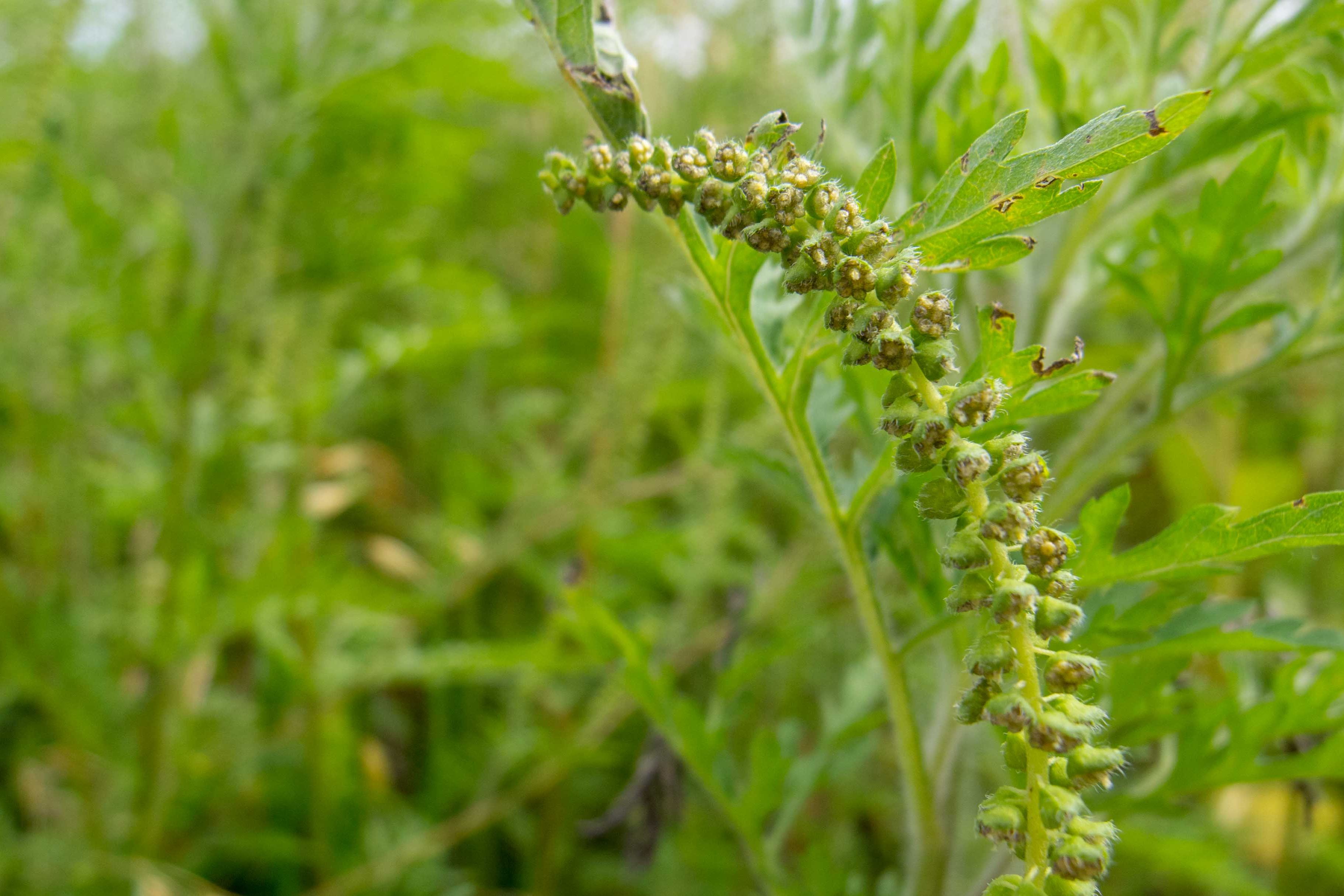
(Vienna, 28 August 2020) Although the pollen season is nearly over, the greatest problem now facing allergy sufferers is the imminent flowering of ragweed, especially in eastern and southern Austria. Those who suffer from ragweed pollen allergy can therefore expect a flareup of symptoms over the coming days. Just before the ragweed releases its pollen, experts from MedUni Vienna's Austrian Pollen Monitoring Service are advising how to reduce allergy symptoms and why it is advisable to wear a face mask.
There are thought to be about 1 million pollen allergy sufferers in Austria. Of these, about 11% are allergic to ragweed pollen. Since ragweed is most widespread in eastern Austria, it is generally assumed that this is where sensitisation is highest. MedUni Vienna's Austrian Pollen Monitoring Service therefore currently estimates there to be around 115,000 people in Austria who are allergic to ragweed pollen (with declining sensitisation rates towards the west of Austria). Essentially, anyone can be affected by a pollen allergy during their lifetime. When it comes to ragweed, those who react to mugwort are also (potentially) affected, since there is a high level of cross-reactivity between mugwort and ragweed.
What damage does ragweed cause – and what can be done to prevent it?
"Ragweed is a significant problem for the healthcare sector. It accounts for an estimated €275 million a year in direct and indirect costs. This not only includes the cost of drugs and medical services but also losses due to absences from work and reduced productivity," explains Uwe Berger from MedUni Vienna's Department of Ear, Nose and Throat Diseases. On top of this, the problems and extra costs that ragweed generates for the agricultural sector, especially in terms of lost harvests, and for road maintenance depots should not be underestimated.
The aim of every pollen allergy sufferer is to avoid the allergen. Those who avoid the allergen suffer less. Even in the case of pollen, it is possible to avoid the allergen and/or minimise any contact with it. Says Berger: "It is highly recommended that ragweed pollen allergy sufferers take their holidays in western Austria, since there is hardly any ragweed there. In addition to that, they should ensure that their living space is clean (NB: dust with a damp cloth, vacuum with a HEPA filter, avoid having any dust collectors, use an air purifier) and adapt their daily routine, for example washing their hair at night, not taking off outdoor clothes in the bedroom. Also, all pollen allergy sufferers are encouraged to wear a face mask."
Why a face mask?
"Wearing a face mask not only helps to prevent COVID-19 infection but also to minimise contact with pollen," points out the Head of MedUni Vienna's Pollen Monitoring Service. The latest research conducted at the Medical University of Vienna points towards this. Preliminary data indicate a reduction in nasal symptoms, lung symptoms, a general improvement in well-being, but more severe eye symptoms. Moreover, a preliminary analysis indicates a drop in sales of medication for allergies and nasal symptoms, accompanied by an increase in sales of eye preparations. "A scientific publication from MedUni Vienna’s Austrian Pollen Monitoring Service will follow in late autumn after further analyses have been carried out on this topic." The expert's advice: "It is therefore recommended to wear a face mask, ideally with sunglasses, to avoid ragweed pollen as much as possible."
In addition to specifically avoiding the allergen, a proactive strategy towards ragweed is called for. To this end, MedUni Vienna’s Austrian Pollen Monitoring Service has developed the Ragweed Finder (www.ragweedfinder.at or Ragweed Finder App), which explains all about ragweed, helps you to recognise it and to report locations where it is growing. Nearly 700 finds have already been reported in 2020 (status 24 August 2020), of which more than 600 have been verified and therefore confirmed as real ragweed finds. The more people who participate and the more finds that are reported, the easier it will be to identify hotspots, so that cooperating regional governments will be able to take targeted countermeasures.
Service:
MedUni Vienna's Austrian Pollen Monitoring Service has worked with the company Gamify to develop a "COVID-19 Game", which is particularly aimed at children and teaches about appropriate precautions through play (https://supersimplestuff.io).